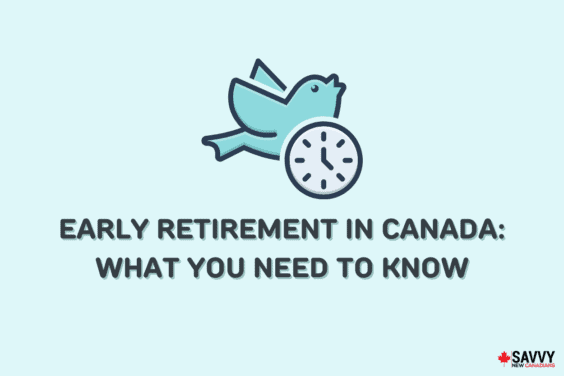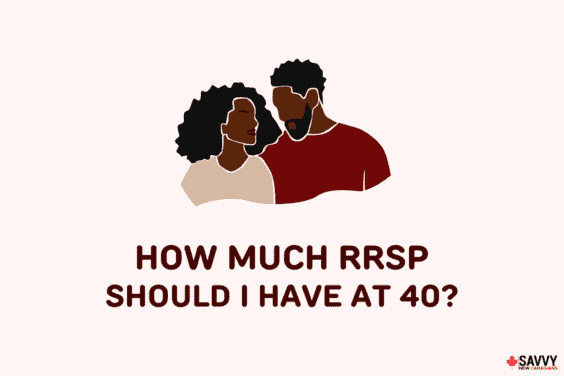What benefits are available to senior immigrants in Canada? Do immigrants get Old Age Security? Do they qualify for the Canada Pension Plan (CPP)?
These are a few of the many questions I get from elderly newcomers to Canada who are concerned about their financial security… now and in the future.
I have previously covered the federal and provincial pension programs for seniors. In this article, I summarize each program and highlight how your eligibility as an immigrant and/or the benefit amount you receive varies based on various factors.
Old Age Security Pension
The Old Age Security (OAS) pension is a monthly payment made to eligible seniors who are 65 years or older.
It is a federally funded program, and you do not need to have worked in Canada to qualify for it.
Who is eligible?
To qualify for OAS, you must be 65 years or older, be a Canadian citizen or legal resident, and have lived in Canada for at least 10 years since turning 18.
You may still qualify for OAS even if you haven’t lived in Canada for 10 years as an adult if you:
1. Have lived in a country with a social security agreement with Canada, e.g. China, Japan, United States, Sweden, Romania, Malta, India, Barbados, Brazil, and several others.
In this case, the time spent living in one of these countries may count towards the 10-year minimum threshold.
Or,
2. Have contributed to the social security of a country that has a social security agreement with Canada.
How much will you get?
The current maximum monthly OAS payment is $713.34 (age 65-74) and $784.67 (age 75 and older) for the January to March 2024 quarter. To receive the maximum amount, you must have lived in Canada for at least 40 years as an adult.
An eligible senior immigrant who has lived in Canada for less than 40 years will receive a prorated pension amount.
For example, if you have lived in Canada for 10 years, you will receive 10/40th or 25% of the maximum OAS amount.
How to apply for OAS
You may be automatically enrolled for OAS when you turn 65 or may need to apply.
If you haven’t received a letter from OAS (Service Canada) stating that you have been automatically enrolled, you should contact them by phone at 1-800-277-9914.
Eligible seniors can apply for the OAS starting one month after their 64th birthday by completing Form ISP-3550 if needed.
Guaranteed Income Supplement
If you are eligible to receive the OAS pension, you may also qualify for the Guaranteed Income Supplement (GIS) if you are a low-income senior.
The GIS is a tax-free benefit; however, you must file a tax return annually to remain eligible.
Who is eligible?
You may be eligible for GIS benefits if you live in Canada, are 65 years or older, and receive the OAS.
As of 2024, your income must be below:
- $21,624: If you are single
- $28,560: If your spouse receives the full OAS pension
- $51,840: If your spouse does not receive OAS
- $39,984: If your spouse receives the Allowance
The residency requirement for OAS means that if you leave Canada for longer than 6 months, GIS payment stops.
How much will you get?
The maximum GIS amount for a single senior is $1,065.47.
If you have a spouse or common-law partner and meet the income threshold, the maximum payout amounts are:
| Your Situation | Maximum Monthly GIS |
| Your spouse receives the full OAS pension | $641.35 |
| Your spouse does not receive OAS | $1,065.47 |
| Your spouse receives the Allowance | $641.35 |
How to apply
You may be automatically enrolled for the GIS. If not, you will need to apply for it when completing your OAS application.
If you only need to apply for GIS, complete Form ISP-3025 online through your My Service Canada Account or mail it to a Service Canada office.
Allowance Benefits
If you receive the GIS, your spouse may be eligible for an Allowance benefit.
Who is eligible?
The Allowance is paid monthly if your spouse is 60-64 years old, is a Canadian citizen or legal resident, lives in Canada, and has lived in Canada for 10 years as an adult, and your combined income is less than $39,984.
How much will you receive?
The maximum monthly Allowance benefit is $1,354.69. Payment stops the month after you turn 65.
How to apply
You must apply in writing and complete Forms ISP-3026 and ISP-3008. Your application can be sent 6-11 months before your 60th birthday.
An Allowance for the Survivor benefit is available to seniors who have lost their spouse, are aged 60 to 64 years, and have an income less than $29,112.
The maximum monthly Allowance for the Survivor benefit is $1,614.89. You must apply in writing and complete Form ISP-3026 and Form ISP-3008.
Canada Pension Plan (CPP)
If you have worked in Canada and made contributions to the CPP during your working years, you may qualify for CPP benefits, including the following:
- CPP retirement pension
- CPP disability pension
- CPP survivor’s pension
- CPP children’s benefit
- CPP death benefit
- CPP post-retirement benefit
The CPP retirement pension pays you a monthly benefit for life. You can start collecting it from age 60 or delay it until age 70.
In Quebec, this pension plan is referred to as the Quebec Pension Plan (QPP).
Who is eligible?
To be eligible for the CPP, you must be at least 60 years old and have contributed at least once to the plan.
How much will you get?
The CPP amount you receive depends on how much and how long you contributed, your average earnings while you were working, and the age you start to collect CPP.
For 2024, the maximum monthly CPP benefit at age 65 is $1,364.60, and the average is $758.32.
If you take CPP early at age 60, your benefits are lower. If you delay taking CPP past age 65 (the standard retirement age), your benefits increase.
If you qualify for other CPP benefits, the amount you receive in 2024 is:
| CPP Benefit | Average Amount | Maximum Payment in 2024 |
| Disability benefit | $1,127.30 | $1,606.78 |
| Survivor’s pension (<65 years) | $498.66 | $739.31 |
| Survivor’s pension (≥ 65 years) | $315.77 | $818.76 |
| Children’s benefit | $281.72 | $294.12 |
| Death benefit | $2,499.73 | $2,500 |
| Post-retirement benefit (at 65) | $11.41 | $44.46 |
If you have contributed to a pension plan in a country with a social security agreement with Canada, it may count towards your CPP contributions.
How to apply
You can apply online using your My Service Canada Account or complete Form ISP-1000 and mail it to the nearest Service Canada office.
Related: Minimum Wage in Canada
Provincial Benefits for Seniors
Below is a list of benefits that may be available on a provincial level to senior immigrants.
Alberta Seniors Benefits
Benefits available to seniors in Alberta include:
- Alberta Seniors Benefit
- Supplementary Accommodation Benefit
- Coverage for Seniors
- Dental and Optical Assistance for Seniors
- Seniors Property Tax Deferral Program
- Seniors Home Adaptation and Repair Program
Get more details about these programs here.
British Columbia Seniors Benefits
British Columbia has the following benefits for low-income seniors:
- Senior’s Supplement
- Shelter Aid for Elderly Renters (SAFER)
- Social Assistance (EIA)
- BC Bus Pass Program
Get more details here.
Manitoba Seniors Benefits
Seniors in Manitoba can access:
- Manitoba 55 Plus
- School Tax Assistance for Tenants 55 Plus (STAT 55+)
- Rent Assist
Get more details on the government’s page.
Ontario Seniors Benefits
In Ontario, eligible seniors can access these programs:
- Guaranteed Annual Income System (GAINS)
- Trillium Drug Program
- Electricity Support Program
- Senior’s Public Transit Tax Credit
- Home and Vehicle Modification Program
- Senior Homeowner’s Property Tax Grant
Find out more about these programs here.
Saskatchewan Senior Benefits
The seniors benefits available in Saskatchewan include the:
- Seniors’ Income Plan
- Personal Care Home Benefit (PCHB)
- Senior’s Drug Plan
- Life Lease Housing for Seniors
Find out more details.
Quebec Seniors Benefits
Low-income seniors in Quebec can access:
- Prescription Drug Insurance Plan
- Shelter Allowance Program
- Grant for Seniors to Offset a Municipal Tax Increase
Find out more here.
New Brunswick Seniors Benefits
Eligible seniors in New Brunswick can access:
- Low-Income Seniors’ Benefit
- Property Tax Deferral Program for Seniors
- Social Assistance Program
Here’s the government’s page.
Prince Edward Island Seniors Benefits
In PEI, you can take a look at:
- Seniors Property Tax Deferral Program
- Seniors Home Repair Program
- Seniors Safe at Home Program
- Seniors’ Drug program
Learn more about the programs here.
Nova Scotia Seniors Benefits
In Nova Scotia, programs for low-income seniors include:
- Seniors’ Pharmacare Program
- Property Tax Rebate for Seniors
- Income Assistance Program
Here’s a listing of Nova Scotia’s benefit programs by TaxTips.
Newfoundland and Labrador Seniors Benefits
For Newfoundland and Labrador, take a look at:
- NL Seniors’ Benefit
- Home Repair and Home Modification Program
- Home Energy Savings Program
- Special Assistance Program
Learn more about NL’s seniors’ benefit program.
Northwest Territories Seniors Benefits
Non-Native and Metis seniors who reside in the Northwest Territories may be eligible for the Extended Health Benefits for Seniors Program.
Other benefits that may be applicable are:
- Senior Home Heating Subsidy
- Senior Citizen Supplementary Benefit
Yukon Seniors Benefits
In the Yukon, low-income seniors may be eligible for:
- Yukon Seniors Income Supplement
- Extended Health Care Benefits
- Yukon Supplementary Allowance
Check the eligibility details.
Conclusion
Immigrants have access to other sources of retirement income, including workplace pensions, the Registered Retirement Savings Plan (RRSP), and the Tax-Free Savings Account (TFSA).
You can explore these accounts further by checking the links below:
- Understanding the TFSA
- Best RRSP Investments
- A Guide To Investment Accounts in Canada
- TFSA Contribution Review
Here’s a guide to retirement income in Canada.




Does the Canada/U.S. Tax Treaty allow U.S. citizens who are permanent residents of Canada to credit their time residing in the U.S. towards the “Residence in Canada” time required for the Old Age Pension?
In other words, is a U.S. citizen permanent resident of Canada who is 65 and has resided in Canada for 5 years eligible for the Old Age Pension, and credited with 40 years of residency (because of having resided in the U.S. for 60 years before becoming a Canadian permanent resident)?
@Lance: Potentially, yes. See https://www.canada.ca/en/services/benefits/publicpensions/cpp/cpp-international/united-states.html
Take your CPP at 60 if you worked less than ten full years in Canada. If you worked 8 1/2 years and contributed for 8 1/2 years and you die – there is no survivor benefit for your spouse and you will not even. get the 2500. death benefit to help pay for the funeral cost. Yes, that’s right – you make contributions but your spouse will get nothing. This is a hard blow for someone who was expecting their spouse to live to 80-85 and together they had budgeted their retirement years based on OAS and CPP. Oh yeah, and your spouse will also get ZERO from OAS.